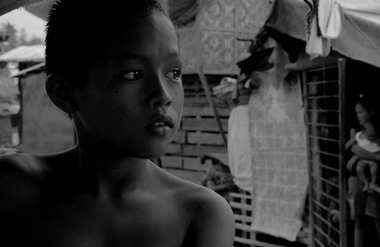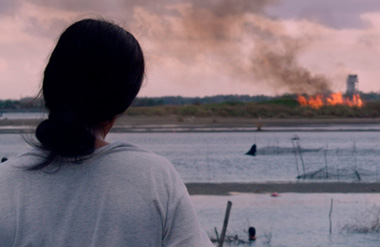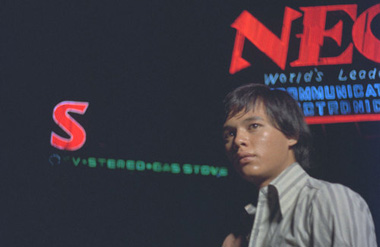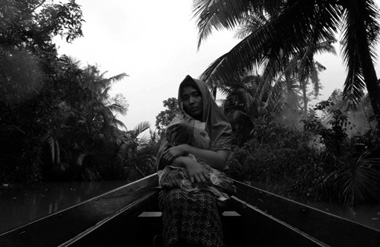Lav Diaz retrospective
CINEMATEK, Courtisane and Bozar, in collaboration with VDFC, are proud to present the first Belgian retrospective to date of the work of Lav Diaz. On November 10–12 the filmmaker will be present in person to talk about his work, as well as that of Lino Brocka, who has made an indelible mark on the culture and cinema of the Philippines, and to whom Diaz paid homage in 'Evolution of a Filipino Family'.
How to come to terms with the history of a country that is haunted by memories of colonization, rebellion and oppression, a country that continues to wrestle with itself in search for meaning and identity? The weight of this question makes itself felt in every frame, in every face, breath and gesture inhabiting the films of Lav Diaz. From his feature debut, Serafin Geronimo: Criminal of Barrio Concepcion (1998), to his latest From What Is Before (2014), all of his films are deeply rooted in the history and politics of his home country, the Philippines. They bear the wounds of a troubled past that have never been able to heal, as the shadows cast by the Spanish and American colonization, the conflict between Moro Muslims and Christians, and Ferdinand Marcos’ imposition of Martial Law still loom heavily over the country. Even though the dictatorship has come to an end almost thirty years ago, the harms and injuries produced by the past have never seemed to wither away, but have grown ever more inward. This legacy of trauma and disempowerment, of “stifled hands and silenced voices,” as Alexis Tioseco wrote, is what can be felt reverberating in Lav Diaz’ shattering tragedies of sin, guilt and redemption.
It seems unlikely to be a coincidence that 19th century Russian literature, especially the work of Dostoevsky and Tolstoy, has never been far from his mind. Already in Serafin Geronimo, which starts out with a quote from Crime and Punishment, Diaz seems to have established his main theme: the search for redemption, a theme which continues to run through his oeuvre, from the Tolstoy-inspired Death in the Land of Encantos (2007), in which a onetime political prisoner confronts his former interrogator, to Norte, the End of History (2013), which begins with a Raskolnikov-like figure committing murder, but develops into an allegory about Marcos. And just as the Russian novelists sought to depict “the Russian soul” by making full use of the temporal spaciousness of their prose epics, Diaz’ portrayals of the lives and suffering of the Filipino people unfold over epic lengths of time, stretching over multiple hours. This duration gives Diaz a grand canvas on which he patiently sketches painstaking diagrams of the factors and events that shape the multiple, interconnected lives of the people he observes, unfurling into panoramic meditations on morality, violence and death, torn between humanist faith and materialist despair.
Cinema as window onto the troubled soul of the world, as a quest for the inner life of reality in all its mystery and ambiguity: in Lav Diaz’ work yesteryear’s dream of André Bazin appears to have found a contemporary follower, a filmmaker who is not about to tone down his search any time soon. As he himself has said, “I would go to any extent in my art to fathom the mystery of humankind’s existence. I want to understand death. I want to understand solitude. I want to understand struggle. I want to understand the philosophy of a growing flower in the middle of a swamp.”
Lav Diaz’ visit to Belgium is a collaboration between CINEMATEK, Courtisane, BOZAR, VDFC, University of Antwerp, Cinema Zuid, Jeu de Paume, Paris, Le Festival d’Automne à Paris, Austrian Film Museum, Cineteca Bologna and with the support of the Philippine Embassy in Belgium.
Special thanks to Lav Diaz, Hazel Orencio, NCCA, Milay Calonge, Faith Planas-Bautista, Nadin Mai.



